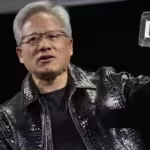
Quantum Computing: The Next Frontier in Technology and Its Transformative Potential
The Rise of Quantum Computing: How It Will Revolutionize Technology
Introduction
Quantum computing is on the brink of transforming the world of technology. Unlike classical computers, which use bits as the smallest unit of data (0s and 1s), quantum computers leverage quantum bits, or qubits, which can exist in multiple states simultaneously. This unique ability allows quantum computers to tackle complex problems much faster than their classical counterparts, potentially revolutionizing industries from cryptography to pharmaceuticals. Understanding quantum computing’s principles, current advancements, and future implications is crucial for grasping how this technology will impact our world.
Understanding Quantum Computing
Quantum computing is grounded in the principles of quantum mechanics, a branch of physics that explores phenomena at the atomic and subatomic levels. The core concepts include:
- Qubits:
- Unlike classical bits, which are binary (either 0 or 1), qubits can represent multiple states simultaneously thanks to superposition. This means that a single qubit can perform many calculations at once, significantly speeding up problem-solving.
- Superposition:
- Superposition allows qubits to be in a combination of 0 and 1 states at the same time. This capability exponentially increases the computational power of quantum systems compared to classical ones.
- Entanglement:
- Entanglement is a quantum phenomenon where qubits become interlinked, such that the state of one qubit directly affects the state of another, regardless of distance. This property allows quantum computers to process complex correlations more efficiently.
- Quantum Gates and Circuits:
- Quantum gates are operations that manipulate qubit states, similar to logic gates in classical computing. Quantum circuits are sequences of these gates that perform complex calculations. For example, the Hadamard gate creates superposition, while the CNOT gate entangles qubits.
- Quantum Algorithms:
- Quantum algorithms leverage these principles to solve specific problems more efficiently than classical algorithms. Shor’s algorithm, for instance, can factor large integers exponentially faster than the best classical algorithms, posing a significant challenge to current encryption methods. Grover’s algorithm, on the other hand, can search unsorted databases quadratically faster.
Current Developments in Quantum Computing
Several leading organizations are at the forefront of quantum computing research and development:
- IBM:
- IBM’s Quantum Experience is a cloud-based quantum computing platform that allows researchers and developers to experiment with quantum algorithms using IBM’s superconducting qubit technology. IBM is working towards building a scalable quantum computer and has achieved significant milestones in qubit coherence and error correction.
- Google:
- Google made headlines with its Sycamore processor, which demonstrated quantum supremacy by performing a specific computation faster than the most advanced classical supercomputers. This achievement marks a significant step towards practical quantum computing and highlights Google’s leadership in the field.
- D-Wave:
- D-Wave’s approach to quantum computing, known as quantum annealing, focuses on solving optimization problems. Their systems have been used for various applications, including financial modeling and logistics optimization, and represent a different paradigm compared to gate-based quantum computing.
- Other Notable Institutions:
- Microsoft’s Azure Quantum is working on both topological qubits and hybrid quantum-classical solutions. Rigetti Computing offers a cloud-based quantum computing service with its own hardware. Startups like IonQ are also contributing to the field with innovations in trapped-ion quantum computing.
Applications and Impact
Quantum computing holds the promise of transformative impacts across multiple domains:
- Cryptography:
- Quantum computers could potentially break current encryption methods such as RSA and ECC by efficiently solving mathematical problems that are currently considered intractable. This would necessitate the development of quantum-resistant cryptographic algorithms to secure sensitive information against future quantum attacks.
- Drug Discovery:
- In pharmaceuticals, quantum computing can simulate molecular interactions at unprecedented levels of detail. This ability could accelerate drug discovery by predicting how drugs interact with biological molecules, thereby reducing the time and cost associated with developing new medications.
- Material Science:
- Quantum computers can model and simulate the properties of new materials at the quantum level, leading to innovations in materials science. This could result in the creation of new materials with tailored properties for various applications, including stronger, lighter, or more conductive materials.
- Optimization Problems:
- Quantum algorithms are well-suited for solving complex optimization problems found in logistics, finance, and supply chain management. For example, they could optimize routes for delivery trucks, improve investment strategies, or enhance resource allocation in manufacturing.
Challenges and Future Outlook
Despite its potential, quantum computing faces several significant challenges:
- Technical Hurdles:
- Error Rates: Quantum computers are prone to errors due to qubit decoherence and noise. Quantum error correction techniques are essential for improving the reliability of quantum computations.
- Qubit Decoherence: Maintaining qubit stability over time is a major challenge. Researchers are working on improving qubit coherence times to enable longer and more complex computations.
- Scalability: Building quantum computers with a large number of qubits while maintaining their stability and entanglement is a complex task. Scaling up quantum systems to handle more significant problems remains a critical area of research.
- Practical Implementation:
- Cost and Accessibility: Quantum computers are currently expensive to build and maintain, limiting access to large corporations and research institutions. Reducing costs and making quantum computing more accessible is essential for widespread adoption.
- Integration with Classical Systems: Quantum computers are expected to work alongside classical systems in hybrid models, where quantum computers handle specific tasks that classical systems cannot. Developing effective integration strategies is crucial for realizing the full potential of quantum computing.
Conclusion
Quantum computing is set to revolutionize technology by solving problems that are currently beyond the reach of classical computers. With advancements in qubit technology, error correction, and quantum algorithms, the future of quantum computing looks promising. As research progresses and challenges are addressed, quantum computing will likely become an integral part of technological advancements, impacting fields ranging from cryptography to drug discovery and beyond. Staying informed about these developments is essential for understanding the future landscape of technology and its implications.
























Post Comment